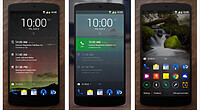
There isn’t an iOS user out there who hasn’t been attacked by an Android fanatic. It is unrestricted, they say. It is free, they say. It is so open, they say. It doesn’t come with the same strict (and unreasonable) rules that iOS does, they say. As it turns out, rising popularity has changed the game significantly… with an Android device now in novice hands more often than not. This reality has forced Google to realize that a little control over their operating system isn’t a bad thing, beginning with a tighter rein on the Play Store (making it look an awful lot more like Apple’s App Store).
Some of the recent changes are fairly harmless, like adding a page for your account that lists every app you have ever bought. Other are slightly more intrusive, like removing a selection of piracy-related apps (including: The Pirate Bay Premium, The Pirate Bay Proxy, The Pirate Bay Mirror, and the PirateApp) from the Play Store by citing violations of their content policy for intellectual property provisions. It gets worse: the developers responsible for those apps also received a policy strike that readies their accounts for suspension if there are repeated violations.
Of course, this attack against piracy shouldn’t really be much of a surprise. Earlier this year, Google added a content suggestion box to their search functionality that lets users easily buy or rent content found in their results. Around the same time, Google also made some adjustments that saw piracy sites losing rank –a move that hurt popular sites, but benefited those that were lesser-known.
Die-hards will still scream from the mountain-tops about how these changes aren’t a big deal if you are willing to jailbreak your device (or side load apps)… but many of the same things could be said for hacked iOS devices too. If you ask me, the real news is more about Google’s changing philosophy than it is about operating system capabilities.
What you won’t hear from those same people, is how Google pretty much rules the targeted ad game: selling your private information to make a little money (some of which goes to pay for patent licenses and other technologies that are required by their ‘free’ operating system).
So what bothers Android evangelists more: seeing Google implement screening processes for apps in their store, or realizing that Google being a little bit more like Apple is a necessary (and functional) evil?
